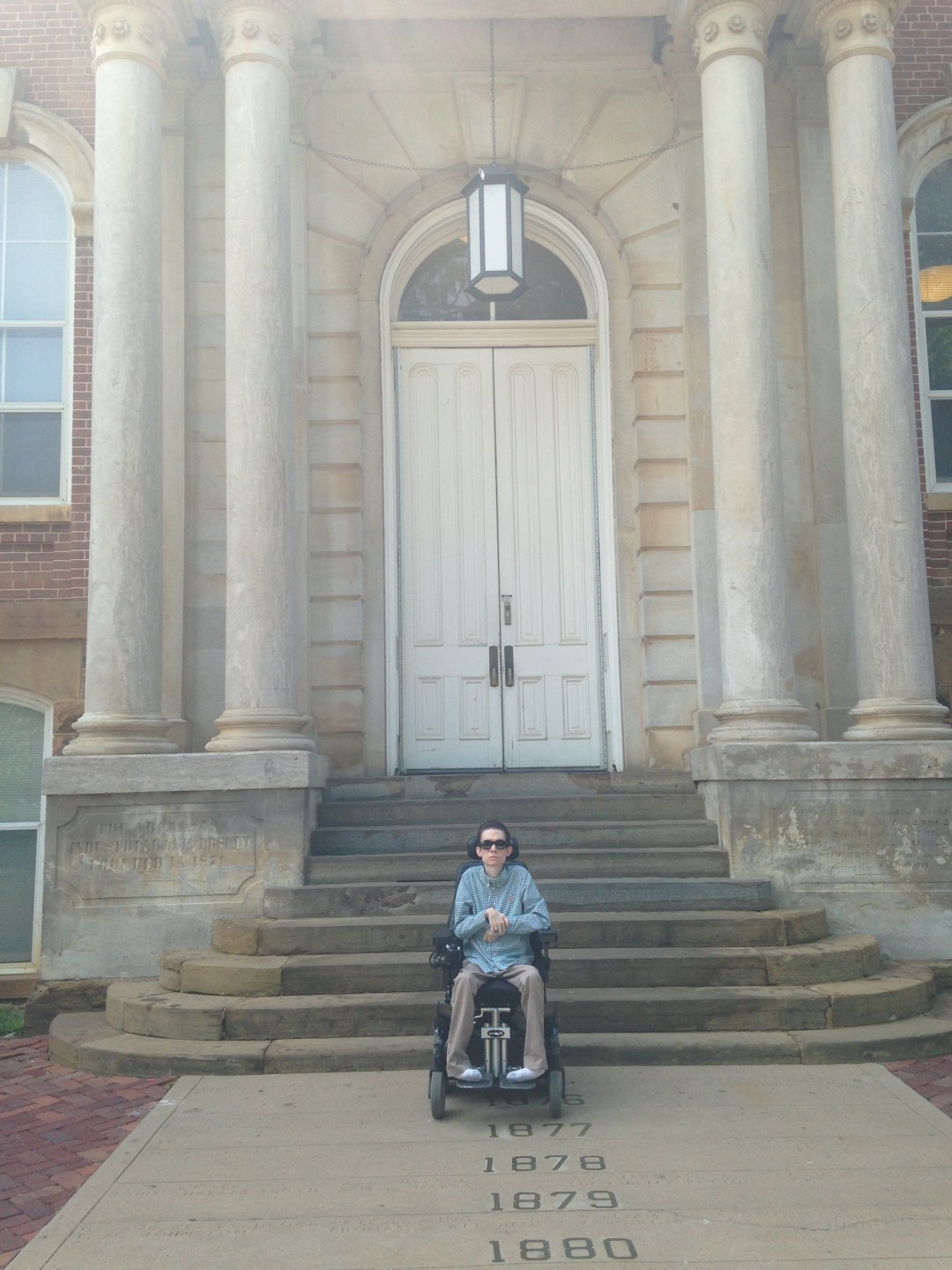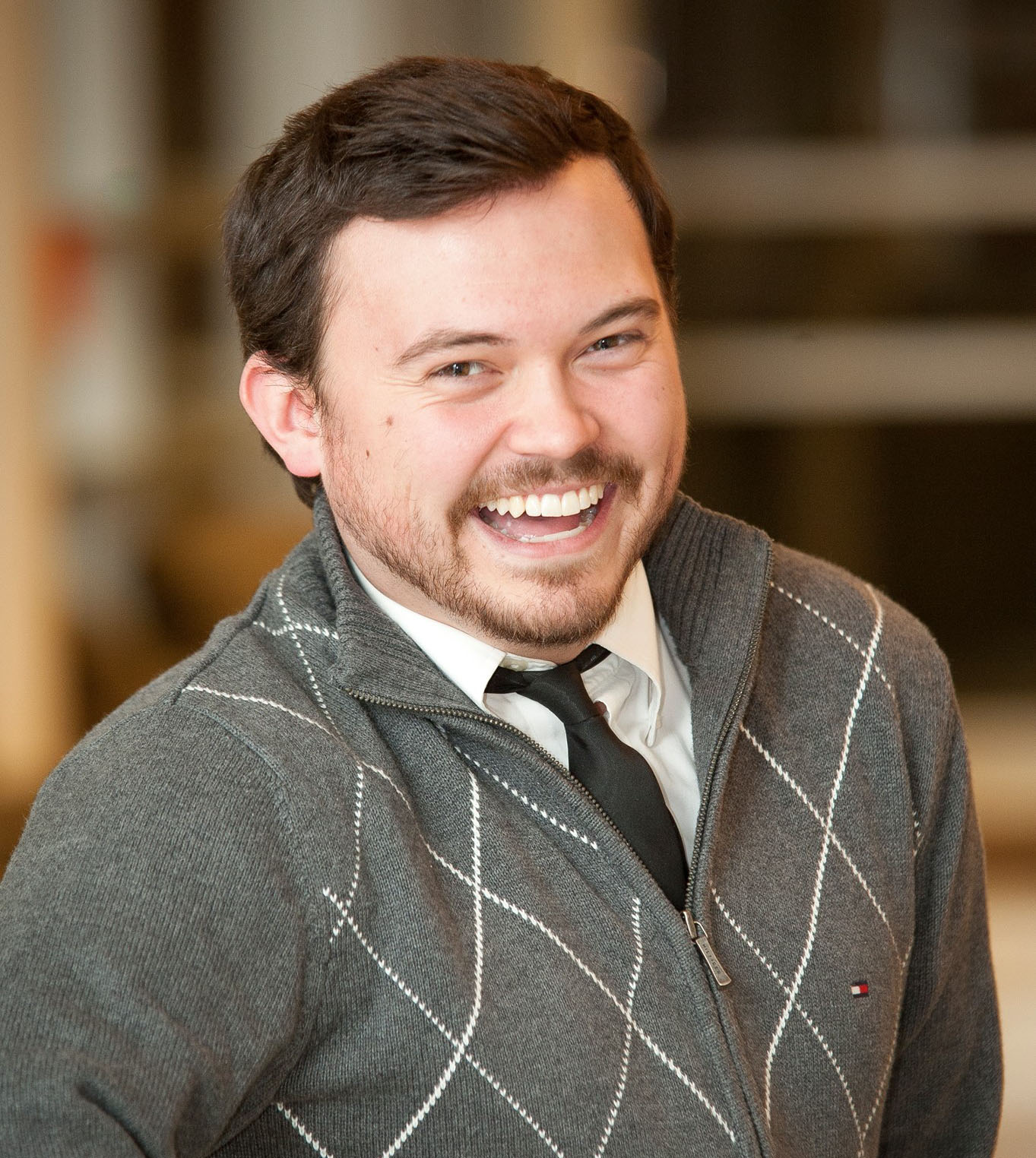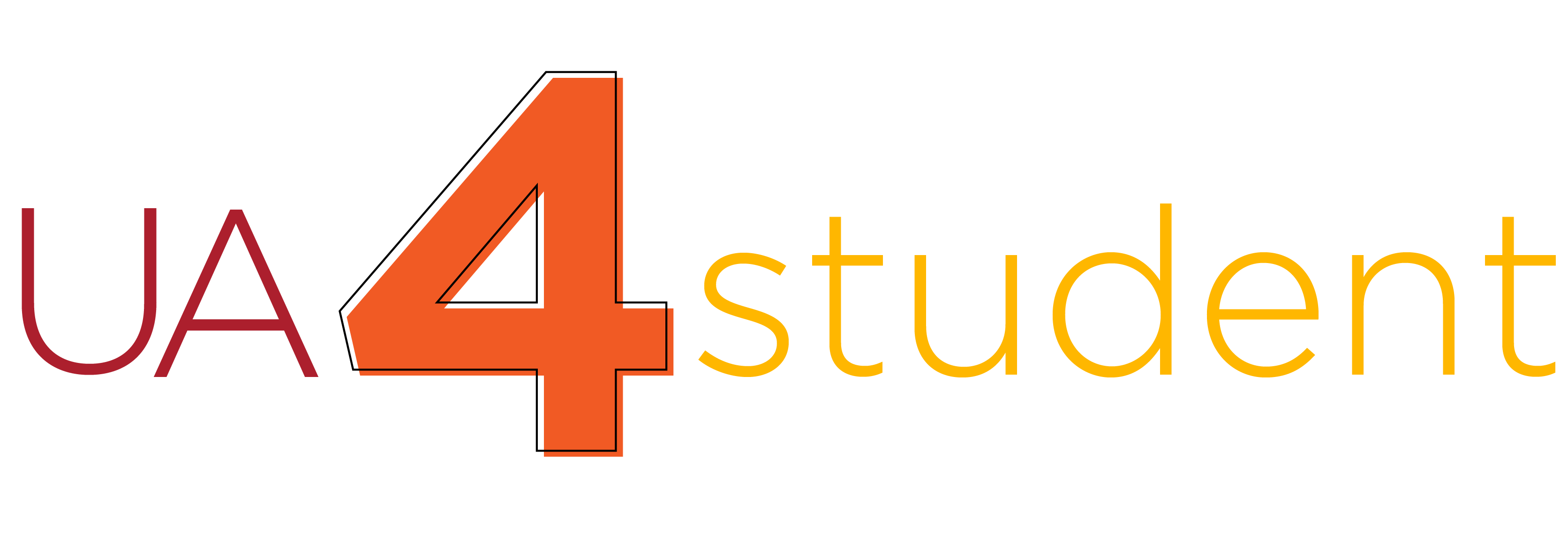
“I have so much respect for people who work so hard throughout their lives and then contribute to society, even after they’re gone. Supplying financial help to students is definitely a great way to do that because the more people that are able to get a quality education, the better society will be in the end. I strive to carry on Ms. Overstreet’s remarkable legacy.”
As a second year law student at the University of Arkansas, Larry Treat faces many of the same challenges as his peers. Difficult class material, demanding time management skills, and questions about the future are commonplace among students in the program. In this environment, where hard work and commitment are key, Treat is rising to the occasion and overcoming his own challenges of mobility and educational access.
After spending his early life and teenage years in North Central Arkansas, Treat was ready for something new with his higher education experience.
“Being from a small town, I knew that anywhere I went to college would technically be far away. But that didn’t necessarily bother me,” Treat said. “I did my research, and I found out the University of Arkansas was ranked highest in the state. I thought ‘Hey, if I’m going to go a long way away, I might as well check it out!’”
It was not until he arrived on the campus for his tour, however, that Treat realized he had found his new home.
“As soon as I got here, it hit me,” Treat said. “I felt like this was the place.”
Treat admits that unlike many people from small towns, he was not intimidated about coming to a big place like the U of A. In fact, that prospect was the most exciting and appealing part to him.
“I was fascinated with how the U of A campus is set up like it’s own town. Just the campus itself is bigger than most of the towns around where I’m from. But I wasn’t intimidated when I got here. I wanted a populous place where I could experience a larger community. There’s a lot of value in that.”
“I was fascinated with how the U of A campus is set up like it’s own town,” Treat said. “Just the campus itself is bigger than most of the towns around where I’m from. But I wasn’t intimidated when I got here. I wanted a populous place where I could experience a larger community. There’s a lot of value in that.”
Achievements and accomplishments almost always come with challenges, but Treat knew the challenges before him and was ready to face them head on. Treat said being a part of the expansive Razorback community has been a highlight for him during his time here, and the support of the larger community has helped him over come the challenges placed in his path. For Treat, the Center for Educational Access (CEA) became an essential resource for his studies.
“The first semester I was here, I met with a representative from CEA and they were so, so helpful,” Treat said. “They took time with me and really let me know what accommodations were available.”
After the initial meeting with CEA staff members, Treat was surprised to learn about the expansive programming the center offers. Treat learned just how much those programs were able to influence his college experience.
“I have trouble using a pen and paper, so I like to type my exams,” Treat said. “They introduced me to the testing center and showed me how much easier testing could be. They taught me about Dragon, which is a program that takes speech and word-processes it. I didn’t have any of that at my other school, so it changed everything for me.”
Treat was overwhelmed by how the CEA had transformed his learning opportunities. However, like many of his peers, he quickly realized that expenses of higher education can be burdening. Though the CEA provides their services at no charge for Treat and other U of A students, there are additional costs students with disabilities incur which can in their personal and academic lives can be devastating.
Someone who was painfully familiar with those challenges was U of A alumnae Linda Overstreet. As a student with disabilities in the 1950s and 60s, Overstreet faced daily challenges in a time when access was not readily available. Ms. Overstreet fought to overcome the barriers to her education, and her impact is still felt today. Late in her life, Overstreet chose to give significantly to U of A with the purpose of helping students with disabilities achieve greater success in their academic careers. Today, her scholarship is awarded to multiple students each semester through the CEA.
When the CEA team told Treat about the Linda K. Overstreet scholarship, he was able to visualize the help it could provide. After submitting his application materials, Treat received word that he had been selected as a recipient. Receiving the news was emotional for Treat, who said he felt incredible relief.
“In law school, when you don’t qualify for most grants or financial assistance anymore, scholarships are about your only help,” Treat said. “So being able to receive those are an incredible stress reliever, like a weight lifted off my shoulders.”
As he nears graduation, a reflective Treat cannot help but express his gratitude to the CEA and donors like Linda Overstreet for their role in his educational success.
“I have so much respect for people who work so hard throughout their lives and then contribute to society, even after they’re gone,” Treat said. “Supplying financial help to students is definitely a great way to do that because the more people that are able to get a quality education, the better society will be in the end. I strive to carry on Ms. Overstreet’s remarkable legacy.”

Matthew Matney
Development Graduate Assistant, Division of Student Affairs
Matthew Matney is a graduate assistant with the Development office for Student Affairs at the University of Arkansas. Matt helps to tell the story of the Division of Student Affairs by highlighting outstanding students and featuring programs through his writing. Matt is pursuing his M.A. is Communications at the U of A.
Want to support students like Larry Treat?
Learn more about how your generous gifts can help support students like Larry Treat in the ROCK Camp program. For more information about giving directly to the Division of Student Affairs, contact Carolyn Collins at 479-575-5007 or by email at cdc008@uark.edu.
